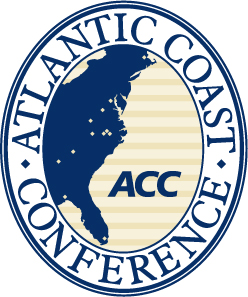The SEC is still the king of football conferences, despite the Big 12's challenge to the throne last season. Another year or two of abject failure on offense for half the SEC's teams might knock the league from its perch, but down years are inevitable and the league should bounce back nicely this season.
What Mark Schlabach wants to know is whether this is the ACC's year to get some national respect. That's kind of like the college football answer to the tech world's question of whether this year is finally the year of Linux on the desktop (hint: someone always asks, and the answer is always no). The ACC is still a few years away.
Here's why.
Schlabach cites some impressive NFL draft stats, and ACC commissioner John Swofford says no league was deeper from top to bottom. Those are nice, but we're talking public perception here. The public has never let a few facts get in the way of its narrative.
The former is actually telling for one of the ACC's problems. It is the conference that is most like the NFL: parity, close scores, and lots of scowling, defensive-minded coaches playing not to lose instead of playing to win. That may get the job done on Sundays, but the college game is different. College football fans as a whole have rejected the "keep it close and win at the end" mentality, though a few exceptions do still remain. Even if you win a title that way, you'll still end up with a derisive nickname like "Luckeyes."
Having a deep league is important; in fact it is one of the things that keeps the SEC at the top of everyone's lists every year. However, you have to have an oligarchy for the nation's fans to give you the most respect. If you have just one or two teams at the top every year, you get branded the Pac-1 or the Big Two (Ohio State/Michigan at one time in the Big Ten; Oklahoma/Texas now in the Big 12). The SEC has six main programs that take turns running the show (Alabama, Auburn, LSU in the West and Florida, Georgia, and Tennessee in the East), while most of the others make runs every so often. The ACC has Virginia Tech, the corpses of what FSU and Miami used to be, and a rotating cast of mostly bland, interchangeable contenders each year.
I don't like to participate in the conference wars since it's like arguing with a wall, but I do keep track of where national sentiment lies. The SEC's advantage in the perception battle has come out in quite handy for its member schools lately, with conference reputation playing a key role in getting 2006 Florida and 2007 LSU into the national title game.
For the ACC to challenge for a top spot in the conference pecking order, it will need VT, FSU, Miami, and one or two other schools to separate themselves from the pack while still having relative quality below them. A couple years of that will have to happen to cement it in people's minds, and yes, because of history, the oligarchy has to include FSU and Miami. It will also need some exciting new ideas on offense to counteract the crusty curmudgeons that largely rule the league now. It could try winning BCS games more often than once a decade as well.
Winning NFL draft day consistently is nice, but it doesn't guarantee you national respect. The ACC has the potential to improve its reputation, but it won't get there as it's currently composed.

